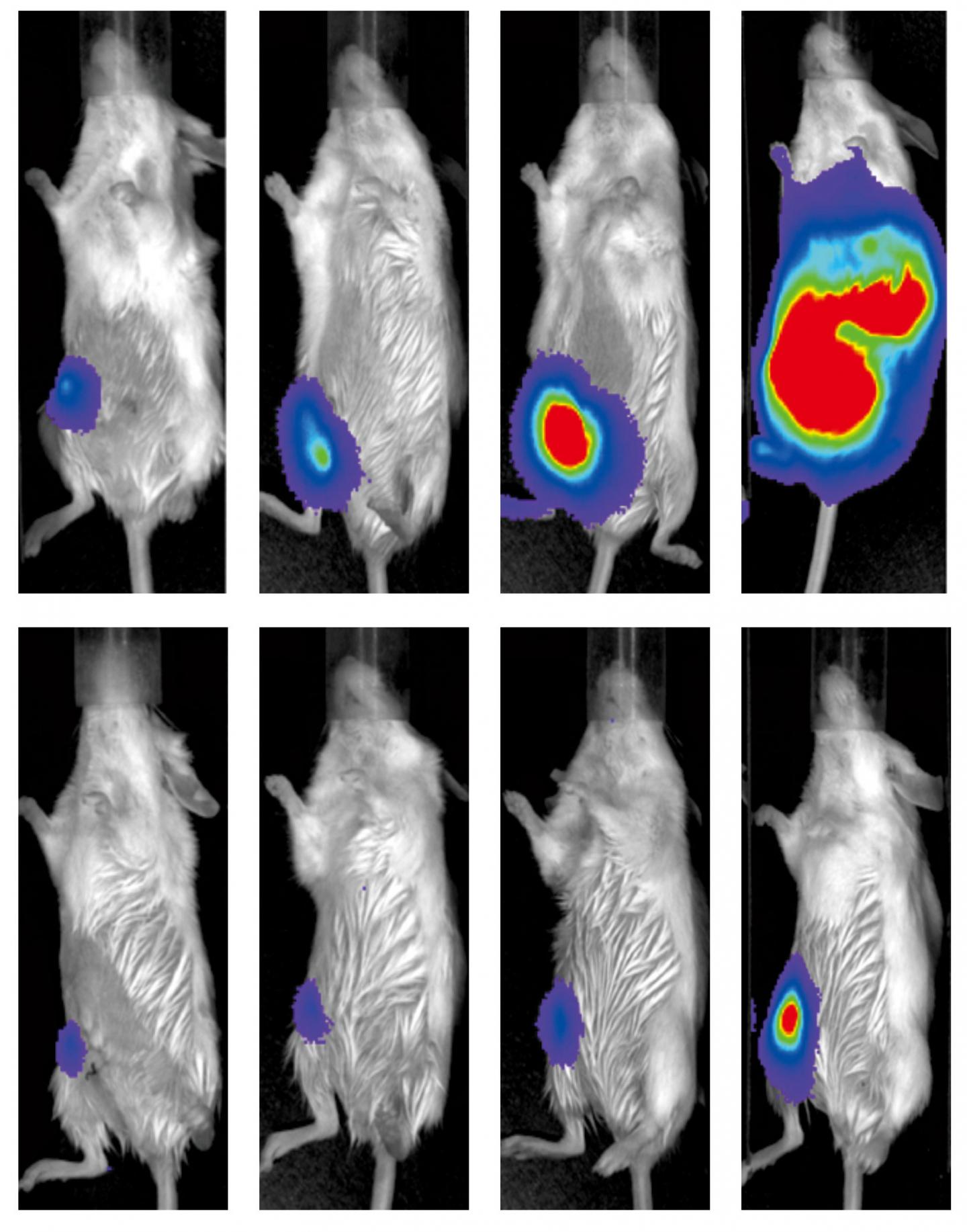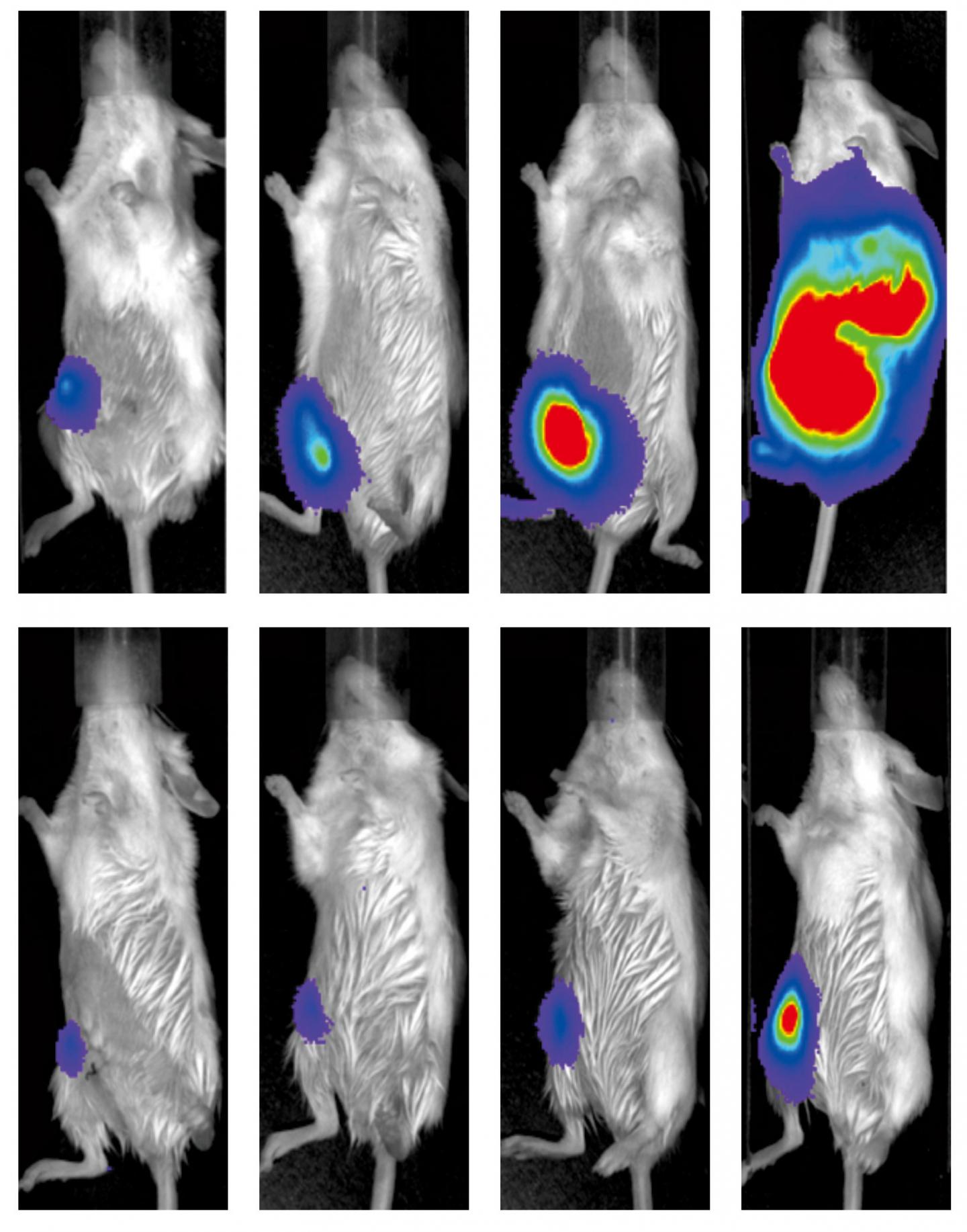
Credit: Chan et al., 2016
Conventional, high-dose chemotherapy treatments can cause the fibroblast cells surrounding tumors to secrete proteins that promote the tumors' recurrence in more aggressive forms, researchers at Taipei Medical University and the National Institute of Cancer Research in Taiwan and University of California, San Francisco, have discovered. Frequent, low-dose chemotherapy regimens avoid this effect and may therefore be more effective at treating certain types of breast and pancreatic cancer, according to the murine study "Metronomic chemotherapy prevents therapy-induced stromal activation and induction of tumor-initiating cells," which will be published online November 23 in The Journal of Experimental Medicine.
Chemotherapy drugs are usually administered to cancer patients every few weeks at a high "maximum tolerated" dose. Though this approach kills the majority of tumor cells, it often spares a small number of tumor-initiating cells (TICs) that subsequently give rise to new tumors. Moreover, these recurring tumors are often more aggressive and able to metastasize to other tissues, in part because high doses of chemotherapy drugs also affect cells in the stromal tissue that surrounds tumors, including immune cells and blood vessel endothelial cells.
Kelvin Tsai at Taipei Medical University and Valerie Weaver at the University of California, San Francisco, decided to investigate the effect of chemotherapy on fibroblasts, a major component of the stroma in desmoplastic tumors such as breast cancer and pancreatic ductal adenocarcinoma.
The researchers found that, in response to the maximum tolerated doses of several commonly used chemotherapy drugs, breast cancer-associated fibroblasts secrete large amounts of cell signaling proteins called ELR+ chemokines. These proteins promoted tumor growth and metastasis in mice by converting neighboring cancer cells into TICs, stimulating the formation of blood vessels within the tumor and enhancing the recruitment of immune cells called macrophages.
Recent studies have suggested that treating patients with low doses of chemotherapy drugs at more frequent, even daily, intervals may be more effective than traditional chemotherapeutic approaches. Tsai and colleagues found that such "low-dose metronomic" regimens did not induce the production of ELR+ chemokines by cancer-associated fibroblasts. This, in turn, reduced the fibroblasts' ability to promote TIC formation, blood vessel growth, and macrophage recruitment.
Mice with breast cancer or pancreatic ductal adenocarcinoma therefore responded better to low-dose metronomic chemotherapy, surviving longer than mice treated with the maximum tolerated dose. "Our results lend support to the emerging paradigm that stroma-derived signals contribute to tumor pathology," Tsai says. "They also suggest that low-dose metronomic chemotherapy or targeting the chemokine signaling mediated by chemo-treated fibroblasts may improve the therapeutic outcome in desmoplastic cancers."
###
Chan et al. 2016. J. Exp. Med. https://doi.org/10.1084/jem.20151665
About The Journal of Experimental Medicine
The Journal of Experimental Medicine (JEM) features peer-reviewed research on immunology, cancer biology, stem cell biology, microbial pathogenesis, vascular biology, and neurobiology. All editorial decisions are made by research-active scientists in conjunction with in-house scientific editors. JEM provides free online access to many article types from the date of publication and to all archival content. Established in 1896, JEM is published by The Rockefeller University Press. For more information, visit jem.org.
Visit our Newsroom and sign up for a weekly preview of articles to be published. Embargoed media alerts are for journalists only.
Follow JEM on Twitter at @JExpMed and @RockUPress.
Media Contact
Ben Short
[email protected]
212-327-7053
@RockUPress
http://www.rupress.org/
############
Story Source: Materials provided by Scienmag





